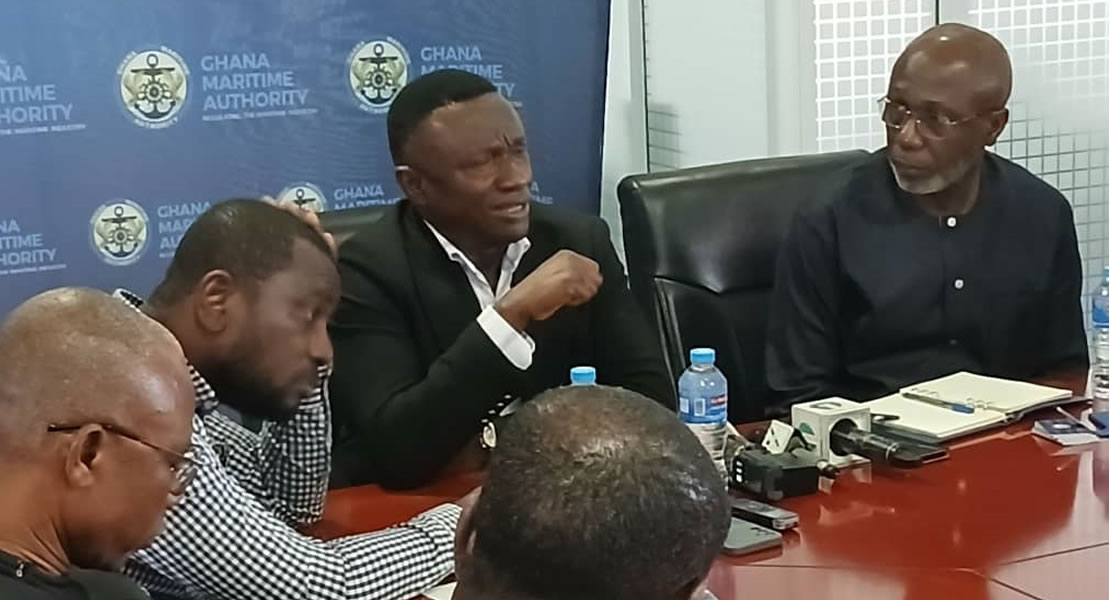
A wave of transformative initiatives is set to bolster Ghana’s maritime and inland transport systems, promising significant job creation and economic development, particularly for coastal and riverine communities.
Dr. Kamal-Deen Ali, Director-General of the Ghana Maritime Authority (GMA), unveiled these ambitious plans during a familiarization visit by members of the Parliamentary Select Committee on Roads and Transport on Wednesday, May 7, 2025.
Working in collaboration with the Ministry of Transport and the Presidency, Dr. Ali confirmed the Authority is spearheading critical transport reforms aligned with President John Mahama’s national development vision.
“As an agency of the Ministry of Transport, we are pursuing key initiatives such as promoting seafaring, expanding inland waterways, and developing postal transport. These are all part of efforts to drive employment and improve economic activity, especially in coastal and riverine communities,” Dr. Ali stated. ”
The Director-General underscored the role of parliamentary cooperation in providing the necessary legal and institutional frameworks for these sweeping changes.
“Ultimately, the executive will have to work with Parliament. Through our Minister and the executive, these proposals will be brought to Parliament for the necessary support,” he noted.
A critical focus of the new strategy is the urgent need for enhanced collaboration between the GMA and the Ghana Civil Aviation Authority (GCAA). Dr. Ali underscored the often-underestimated intersection between maritime and aviation, particularly concerning aircraft traversing Ghana’s extensive airspace.
“The world is bluer than brown – 70 per cent of it is covered by water. If there is any aviation disaster over the sea, both Civil Aviation and Maritime must coordinate swiftly. We’ve not yet developed a strong working relationship. That’s why I’m drawing attention to the need for joint Standard Operating Procedures (SOPs), daily communication, and cross-sector coordination,” Dr. Ali explained, stressing that many aircraft choose routes over water.
This call for synergy is particularly relevant given the GMA’s oversight of a vast maritime search and rescue (SAR) zone, extending far beyond Ghana’s territorial waters to regions as distant as Liberia. This responsibility necessitates robust coordination with neighbouring maritime authorities and aviation bodies, guided by the International Aeronautical and Maritime Search and Rescue (IAMSAR) agreement, which Ghana upholds.
Dr. Ali, further emphasizing the interconnectedness, pointed out that both maritime and national airspaces share jurisdiction over the Exclusive Economic Zone (EEZ), reinforcing the imperative for integrated operational frameworks,.
According to him, the GMA is already making strides with operational deployment to Kpandu, a major loading site on the Volta Lake. The Authority is also tackling environmental challenges, such as seaweed invasions, by procuring and deploying skimmers.
“We provided skimmers to the Volta River Authority (VRA) to help manage seaweed infestations affecting lake transport. Although VRA is using them, they remain GMA assets purchased for national benefit,” Dr. Ali clarified.
While acknowledging resource constraints and the low revenue-generating capacity of inland boat operators, who currently do not pay operational fees, the Director-General reaffirmed the GMA’s commitment to progressively improving safety and infrastructure as resources permit.
Members of the Parliamentary Select Committee commended the GMA for its strategic foresight. They pledged their support for policies to modernize and diversify Ghana’s transport infrastructure, aligning with national development objectives.
Ghanamps.com